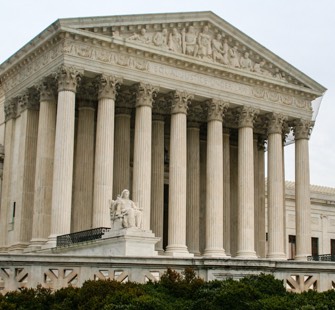Laches no defense to patent infringement during statute of limitations
 The United States Supreme Court recently issued its decision in SCA Hygiene Products Aktiebolag et al. v. First Quality Baby Products, LLC, et al. The issue before the Supreme Court was whether the defense of laches remained a viable defense to patent infringement actions brought during the exceptionally long six-year statute of limitations. The Supreme Court ruled that the defense of laches is inappropriate for claims brought within the statute of limitations, hardly a shocking ruling given that the Court reached the same ruling only several years ago with respect to laches as a defense in copyright infringement claims. See Petrella v. Metro-Goldwyn-Mayer, Inc., 572 U.S. ___ (2014).
The United States Supreme Court recently issued its decision in SCA Hygiene Products Aktiebolag et al. v. First Quality Baby Products, LLC, et al. The issue before the Supreme Court was whether the defense of laches remained a viable defense to patent infringement actions brought during the exceptionally long six-year statute of limitations. The Supreme Court ruled that the defense of laches is inappropriate for claims brought within the statute of limitations, hardly a shocking ruling given that the Court reached the same ruling only several years ago with respect to laches as a defense in copyright infringement claims. See Petrella v. Metro-Goldwyn-Mayer, Inc., 572 U.S. ___ (2014).
Unlike most patent decisions, the decision in SCA Hygiene Products was not unanimous. The majority opinion was delivered by Justice Alito, who was joined by the Chief Justice, as well as Justices Kennedy, Thomas, Ginsburg, Sotomayor, and Kagan. A dissent was filed by Justice Breyer, who would have affirmed the Federal Circuit ruling finding that 35 U.S.C. 282 codified a laches defense without using the term “laches.” It was Justice Breyer’s belief that the codified defense of unenforceability allowed for a laches defense to patent infringement actions, explaining that in very old cases interpreting the common law, laches was at times equated to unenforceability.
CAFC says laches still a defense to patent infringement
 Recently, the United States Court of Appeals for the Federal Circuit, sitting en banc, decided SCA Hygiene Products Aktiebolag v. First Quality Baby Products, which required the Court to determine the continued applicability of the laches defense for patent infringement actions. This issue presents itself in light of the Supreme Court’s recent decision in Petrella v. Metro-Goldwyn-Mayer, Inc., 134 S. Ct. 1962 (2014), which determined that laches is not a defense to a copyright infringement action brought within the statute of limitation.
Recently, the United States Court of Appeals for the Federal Circuit, sitting en banc, decided SCA Hygiene Products Aktiebolag v. First Quality Baby Products, which required the Court to determine the continued applicability of the laches defense for patent infringement actions. This issue presents itself in light of the Supreme Court’s recent decision in Petrella v. Metro-Goldwyn-Mayer, Inc., 134 S. Ct. 1962 (2014), which determined that laches is not a defense to a copyright infringement action brought within the statute of limitation.
Petrella involved an assertion that Metro-Goldwyn-Mayer’s (“MGM”) 1980 film “Raging Bull” infringed a copyright in a 1963 screenplay authored by Frank Petrella. Frank Petrella’s daughter renewed the copyright in 1991, but did not contact MGM until seven years later. Over the next two years, Petrella and MGM exchanged letters concerning Petrella’s copyright claim. Petrella then went silent, and did not file suit until January 6, 2009, about nine years after her last correspondence with MGM. MGM moved for summary judgment based on laches, which the district court granted and the Ninth Circuit affirmed.


No Comments
04.26.17 | Patent Issues, Patent Litigation, posts, Supreme Court Cases | Gene Quinn